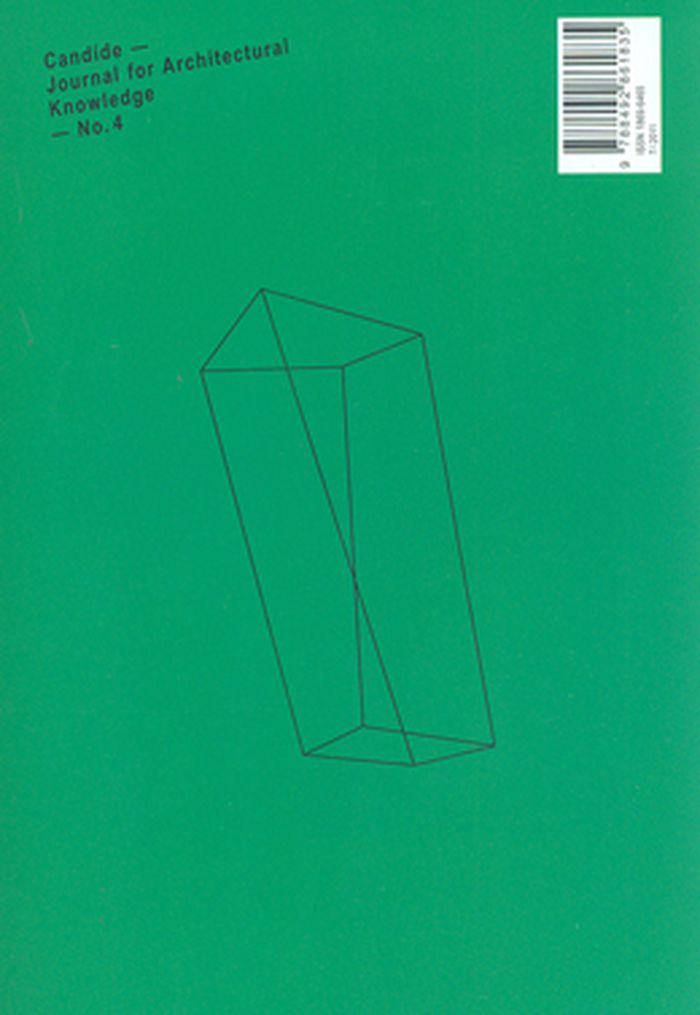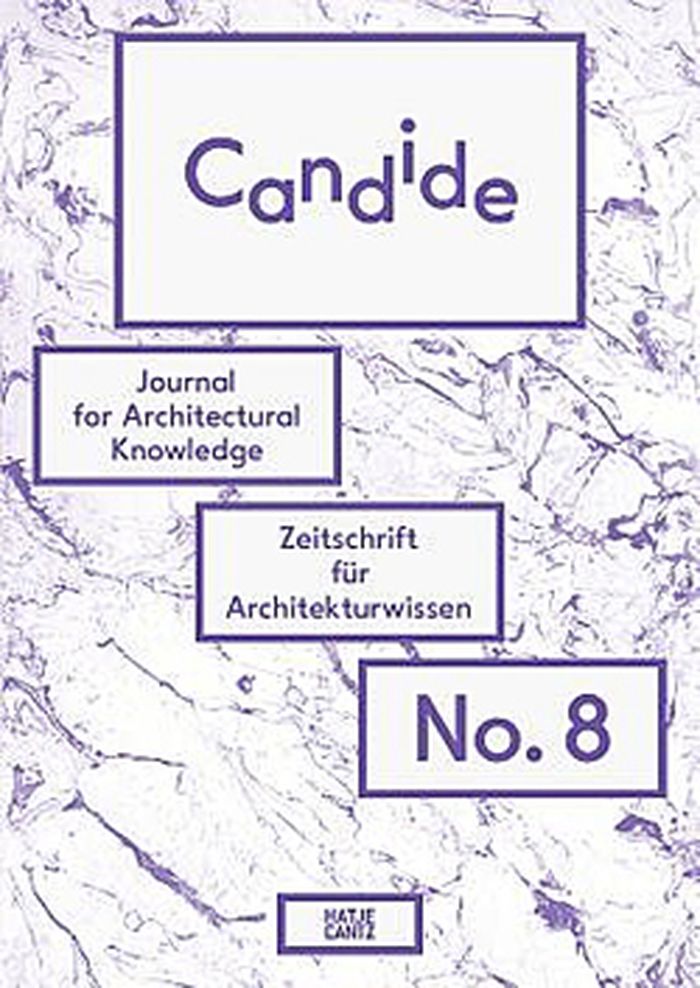$27.95
(available to order)
Summary:
Candide is a peer-reviewed journal dedicated to exploring the culture of knowledge specific to architecture. It is released twice a year in English and German. Each issue of Candide is made up of five distinct sections. This frame- work responds to the diversity of architectural knowledge being produced, while challenging authors from all disciplines to test a variety of(...)
Candide: journal for architectural knowledge no.4
Actions:
Price:
$27.95
(available to order)
Summary:
Candide is a peer-reviewed journal dedicated to exploring the culture of knowledge specific to architecture. It is released twice a year in English and German. Each issue of Candide is made up of five distinct sections. This frame- work responds to the diversity of architectural knowledge being produced, while challenging authors from all disciplines to test a variety of genres in order to write about and represent architecture. "Essay" provides a forum for discussion of architectural knowledge, including both fundamental research into and speculative arguments on its nature. "Analysis" allows for in-depth examination of built form: how can the knowledge embodied in buildings be retrospectively extracted and creatively re-used? "Project" is directed at architects who see design as a theoretical tool: how can a specific design proposal become a model of thought? "Encounters" gives access to the personal knowledge of renowned, unjustly forgotten, or entirely unknown protagonists of architecture. "Fiction" reflects the editors' conviction that sometimes the imaginary may reveal more about architectural knowledge than science.
Magazines
$35.00
(available to order)
Summary:
How is an architect’s knowledge generated, gathered and passed on? Who are the people, institutions and groups involved? These questions are at the heart of the series of essays in Candide’s eighth volume.
Candide no. 8 : journal for architectural knowledge
Actions:
Price:
$35.00
(available to order)
Summary:
How is an architect’s knowledge generated, gathered and passed on? Who are the people, institutions and groups involved? These questions are at the heart of the series of essays in Candide’s eighth volume.
Magazines

